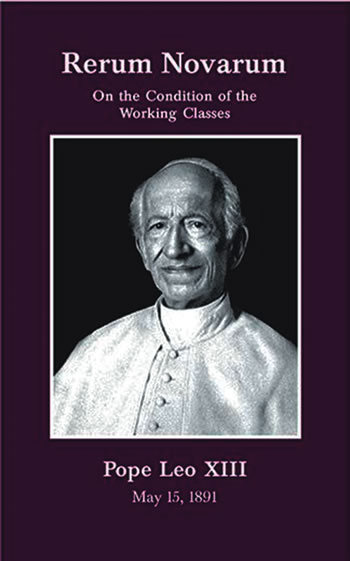The Value of Catholic Social Teaching

Fr Neil Vaney SM
A treasure trove of thoughts
There’s a standard joke among those committed to justice in society that Catholic Social Teaching (CST) is the Church’s best kept secret. It’s a vision derived from biblical texts on the creation of humans and God’s covenants with the Jewish patriarchs Noah, Moses and David, up to Jesus’ parables about Dives and Lazarus (Lk. 16.19-31) and the rich man and his barns (Lk 12.16-21). This vision has been developed over the centuries, right up to the recent pastoral letter of Pope Francis, Laudato Si’, on the environment.
What does this treasure include?
 CST covers an eye-opening range of topics: human dignity and development; freedom, rights and reciprocal responsibility; the family as the basis of society; social justice and equality; as well as respect for cultural autonomy and diversity. Then there’s a whole series of topics on the principles of political economy, such as economic justice; the universal destination of goods; dignity of work, fair wages and workers’ rights; subsidiarity and the role of government; participation in civil and political processes; and global development and peace.
CST covers an eye-opening range of topics: human dignity and development; freedom, rights and reciprocal responsibility; the family as the basis of society; social justice and equality; as well as respect for cultural autonomy and diversity. Then there’s a whole series of topics on the principles of political economy, such as economic justice; the universal destination of goods; dignity of work, fair wages and workers’ rights; subsidiarity and the role of government; participation in civil and political processes; and global development and peace.
The Church’s right to speak out
Modern critics sometimes question the Church’s right and competency to speak out on political and economic issues. Yet these are precisely the areas where the stability and dignity of families and workers are deeply rooted. Such claims have a long and noble history. As early as the start of the 5th century, St Augustine tackled care for the poor, fighting hunger and making peace for the people of his city, Hippo, in the north of Africa. In the Middle Ages, Thomas Aquinas developed teaching on property ownership, church/state relations and the role of government. This tradition was carried on in the University of Salamanca where teachers like di Vitoria and Francisco Suarez publicly debated current issues such as slavery of the Indians, usury and even inflation.
From Leo XIII’s letter Rerum Novarum in 1881, dealing with the evil effects of the Industrial Revolution, modern popes have battled to defend the poor and marginalised. How current and how necessary such messages remain today resonates from these words of Pope St John Paul II in his World Day of Peace message in 1990:
It is manifestly unjust that a privileged few should continue to accumulate excess goods, squandering valuable resources while masses of people are living in conditions of misery at the very lowest levels of subsistence. Today, the dramatic threat of ecological breakdown is teaching us the extent to which greed and selfishness – both individual and collective – are contrary to the order of creation, an order which is characterised by mutual interdependence (8).
 Sometimes it is only the Church that has the courage and possibility to utter such truths.
Sometimes it is only the Church that has the courage and possibility to utter such truths.
This article is re-printed from the New Zealand Catholic Enquiry Centre website -- www.catholicenquiry.org.nz -- It is used with permission.
 Entries(RSS)
Entries(RSS)